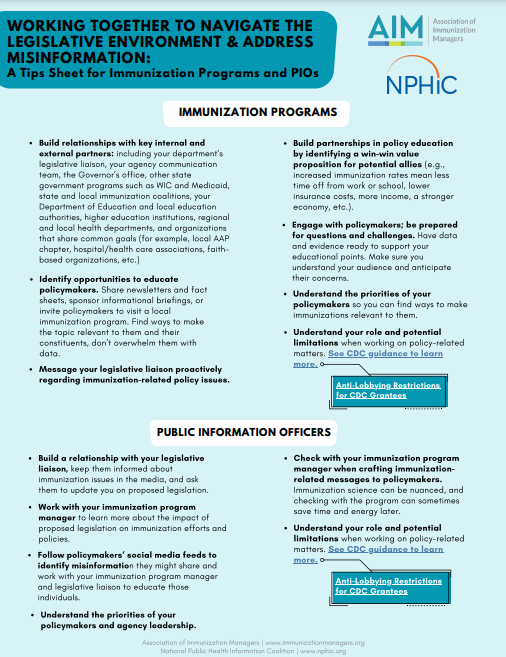
Working Together to Navigate the Legislative Environment and Address Misinformation: A Tip Sheet for Immunization Programs and PIOs
AIM and the National Public Health Information Coalition (NPHIC) are pleased to announce a new publication, a tip sheet to help immunization programs managers and public information officers collaborate effectively to navigate the legislative environment and address incorrect vaccine information.
Immunization Programs
Public Information Officers
Together
Federal Funding Parameters
Permitted with Federal Funding
- Working on policy-related matters within your branch of government (e.g., executive branch).
- Education without value judgement or linkage to a particular legislative action.
- Advocacy that conveys general support for a cause, promotes best practice, or supports national recommendations that do not seek a policy outcome or decision.
